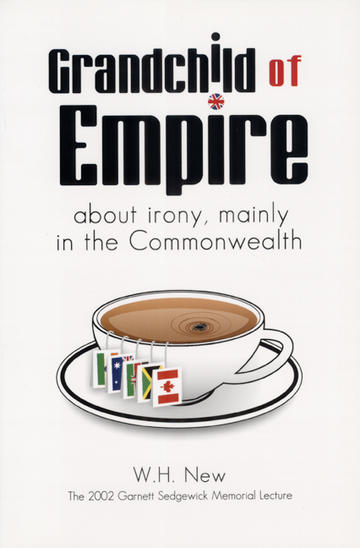As W.H. New's Grandchild of Empire shows, irony is not dead, but has found fresh purpose. New looks at the politics of irony in modern writing and explains how it relates to imperial history, how it impacts upon personal memories, how it speaks from the margin, and how it indirectly teaches us to resist presumptuous authority. Focusing on postcolonial poetry and prose, but also including autobiographical incidents and memories, New establishes how irony speaks "about" from the outside. He emphasizes the importance of voice in communicating what irony has to say, the necessity of listening closely to how ironic literature speaks. And he draws his examples from around the world, ranging from Canada and the Caribbean to Africa, India and Australia. Funny, informed and emotionally engaging, Grandchild of Empire, an extension of the 2002 Sedgewick Lecture at the University of BC, demonstrates how writers have actively adapted the English language in order to undermine empty conventions of literary and political power, and to affirm, even in bleak times, self-esteem. Includes eight black and white illustrations.
William New is one of Canada's outstanding men of letters: well known for his children's books - Vanilla Gorilla, Dream Helmet and Llamas in the Laundry - his adult poetry, his writings on Canadian and postcolonial literature, and his literary criticism (some 30 volumes). He is on the editorial board of the New Canadian Library and the editor of the monumental Encyclopedia of Literature in Canada (U of Toronto Press). For many years he was the editor of the journal Canadian Literature,and he is presently on the board of the New Canadian Library. He is Professor Emeritus of English and Canadian literature at the University of B.C. He lives in Vancouver.



